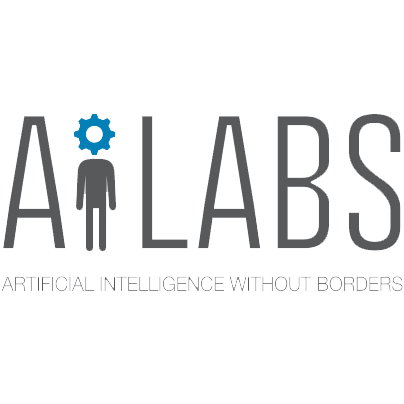“Hey Siri! Where’s the nearest ATM?”
“Alexa, what is a dragon fruit?”
Such conversations are becoming a part of our daily lives now. Digital assistants like Siri and Alexa have improved the quality of our digital experience significantly over the past few years. They are quick in responding, a lot more accurate than before, and most importantly, a lot more ‘human’. They have redefined the concept of a personal assistant for our simple everyday tasks. These assistants have a wide range of applications, and the technology backing these digital assistants is a lot more universal.
Artificial Intelligence, or AI, is at the core of these digital assistants and numerous other technological advancements in today’s world. Classical AI primarily focused on knowledge extraction or elicitation from human domain expert, encoding and representation of extracted knowledge in a knowledge base, and deductive inference utilizing the pre-constructed knowledge base. With the remarkable advances in platforms and algorithms, data has now become the make-or-break factor. Present-day AI systems are driven by data – accurate, specialized, reliable data. These AI systems observe patterns in large volumes of data, patterns which would have been difficult or impossible for a human to find. They help us to gain insights and harness the power of the large volumes of data that is being generated every day.
AI is entering our collective consciousness, and is impacting our lives faster than we can imagine. From Facebook friend suggestions, chat bots in retail sites, to self-driven cars, we interact with AI more than we realize. With its phenomenal growth over the past decade, AI continues to have broad implications for most major sectors. Domains like banking, retail industry, manufacturing industry and healthcare have benefited a lot from the advances in AI, and will continue to do so in the years to come.
Many feared that the rise of cognitive automation systems driven by AI will lead to mass unemployment. Indeed, AI and related technologies are expected to eliminate millions of jobs over the next two decades. But they are also expected to create the same amount of jobs, if not more, over the same period. The new wave of AI will require existing or newly on-boarding workers to learn newly relevant skills. Skills like big data analytics, predictive analytics, robotic process automation, etc. are in huge demand today as they will help professionals to design, deploy and maintain AI systems. A major shift in the quality, location and permanency of the new jobs is also expected.
With the rising acceptance of AI across different industry verticals, the demand for many jobs has increased. Let us take a look at a few of the jobs which are very much in demand in today’s world.
1) Data Scientist and Machine Learning Engineer
Data Scientist and Machine Learning Engineer are the top ranked jobs in the tech world today, and they command high salaries as well. A data scientist’s job is to analyze, visualize and model large amounts of data, and make useful inferences from data in order to efficiently improve business operations. A machine learning engineer is a software developer who specializes in machine learning and is required to develop and deploy machine learning solutions into production. Data scientists may come from different background than software engineers, and need not be experts in programming languages. A machine learning engineer, however, is needed to develop working software which runs autonomously with minimal human intervention. The role of a machine learning engineer was developed to bridge the gap between a traditional software developer and a data scientist.
2) Business Intelligence Developer
Business intelligence developers are data experts who primarily work with databases and other types of software to design, development and maintain business intelligence tools and models. They are required to make sense of the data which a specific business already possesses. They also participate in crafting and executing queries on data request, and presenting information through reports and visualizations.
3) Robotics Scientist
Robotics scientists are professionals who carry out research, design and deploy robotic systems across different industries. Robots have become a routine part of major industries like healthcare, manufacturing, agriculture and retail. The goals to be accomplished are different from field to field, and robotic scientists are required to come up with designs and prototypes which are user-friendly as many personnel of various fields do not receive technical training. Robotic scientists may also be required to create specific parts for a system.
4) Data Analyst
Data analysts gather, investigate and represent data to provide actionable insights. They provide these analyses to other people, who then make business decisions based on what is presented. They may not possess the coding skills of a data scientist, their primary objective is to analyze data and use different presentation techniques to deliver it in an easy-to-understand manner. They are usually tasked with solving specific problems in a big data project, and not assigned the project as a whole.
5) Data Wrangler
Wrangling refers to the process of transforming “raw” data into a more “appropriate” format so that it can be utilized for various downstream purposes. A data wrangler has to carry out data transformation, either by designing their own algorithms or by using readily available tools like Trifacta Wrangler, OpenRefine, etc. Data generated from various sources is diverse and unstructured and needs to be cleaned and structured into a desirable format for reducing decision making time using the data.
6) Game Designer
The gaming world has been hugely impacted by AI. From DeepBlue beating Garry Kasparov in chess back in 1998, to AlphaGo defeating Lee Sedol in Go in 2016, computer systems have harnessed AI to provide an improved gaming experience. In today’s world, we no longer need a human opponent to challenge us in a game, we have AI systems to compete with. Game designers are a part of a fast-growing industry trying to meet seemingly limitless demands. Game designers are people who design, develop and supervise game systems, controls and interfaces. They may be asked to design characters and levels, write code in different programming languages to implement game control, or test newly-developed gaming softwares.
The limitless applicability of AI has raised the need for skilled professionals who can design, deploy and maintain automation systems. Recruiters all over the world are hiring promising AI talents, and providing them with high salaries and lucrative incentives. The time to embrace AI as a career has arrived. So don’t let the opportunity slip. Join this new wave of AI and contribute in making a better future.




Nice article i was really impressed by seeing this article, it was very interesting and it is very useful for me.
Artificial Intelligence Training In Hyderabad